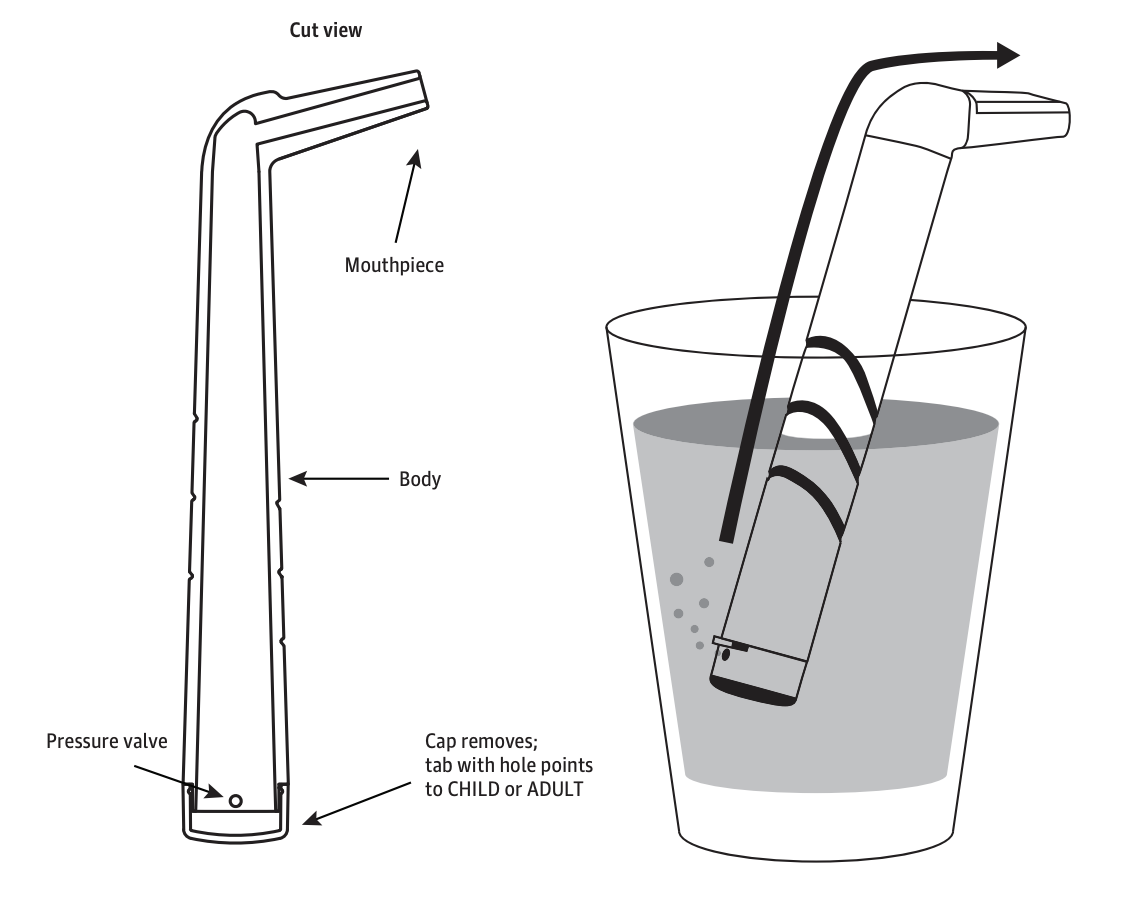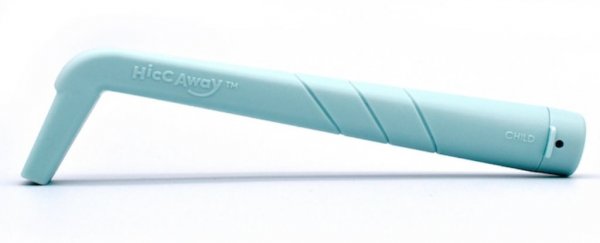Getting rid of hiccups is no easy feat. Once your diaphragm starts involuntarily spasming, there's little you can do to stop the ensuing "hupps" and "hics" other than wait it out.
If you want to speed up the process, you can always try holding your breath, drinking upside down, sucking on a lemon, or eating a spoonful of sugar, but as popular as these traditional hiccup 'cures' are, the advice is notoriously unreliable.
Although hiccups are nothing more than a minor inconvenience to most of us, for those that suffer hiccups regularly, hope could come in the form of a specialized straw recently invented by a neurologist.
The device is creatively named HiccAway, and if it looks like a Kickstarter product, that's because it is. However, in a newly published research letter in JAMA Network Open, survey results from 249 volunteers around the world indicate that 90 percent of the users think this thing works better than traditional remedies.
The straw has a mouthpiece at one end and a pressure valve at the other, which requires you to suck harder than you would through a normal straw. This pressure causes your diaphragm to contract, stopping the uncontrollable influxes of air which rhythmically slam your vocal cords shut and cause the classic sound of a hiccup.
All that's required to stop these 'burps of the throat' is to submerge HiccAway in half a glass of water and begin sucking. Those who have used the device say it takes as few as one or two attempts for the hiccups to fade.
According to the inventor, the valve at the bottom of the straw can be adjusted for the sipping capabilities of both children and adults.
 Diagram of HiccAway, aka 'the forced inspiratory suction and swallow tool'. (Alvarez, JAMA Network Open, 2021)
Diagram of HiccAway, aka 'the forced inspiratory suction and swallow tool'. (Alvarez, JAMA Network Open, 2021)
The first trials on this special straw are based on subjective reports and do not include a placebo, so there's reason to remain skeptical. To determine if HiccAway really is the best remedy on offer, one would need randomized, placebo-controlled studies.
While drinking upside down or eating a spoonful of sugar might not sound very scientific, these traditional cures are based on stimulating the vagus nerve and the phrenic nerve, which help to regulate your swallowing and breathing.
If you can reboot the messages these nerves are sending by voluntarily swallowing, then it could help your diaphragm catch its breath during a spasm event. Logically, the theory is sound, but there are few randomized placebo-controlled trials to determine whether vagus-based remedies actually work.
In fact, a systematic review in 2015 found there was not enough evidence to make any strong recommendations for hiccup cures at all.
HiccAway is yet another solution based on stimulating the vagus and phrenic nerve, but it too hasn't yet been tested thoroughly. Still, it was invented by a neurologist who has seen his share of patients suffering from hiccups due to brain injuries.
Ali Seifi reportedly spent years trying to find a simple solution for his patients - one that simultaneously stimulates the phrenic and vagus nerve. HiccAway is the fruit of his labor.
Not all the reviews on the product's website so far describe the device as useful, but many report positive results.
Given how uncomfortable and annoying hiccups can be, especially for those with persistent cases, it's worth investigating Seifi's straws more.
The study was published in JAMA Network Open.
